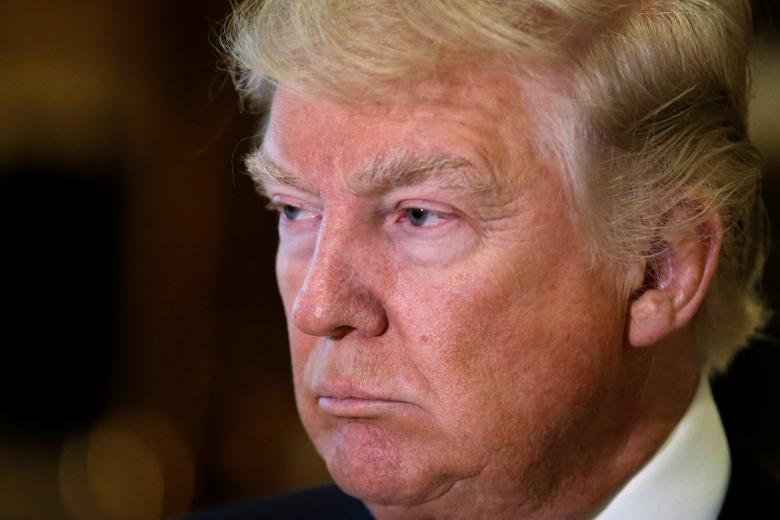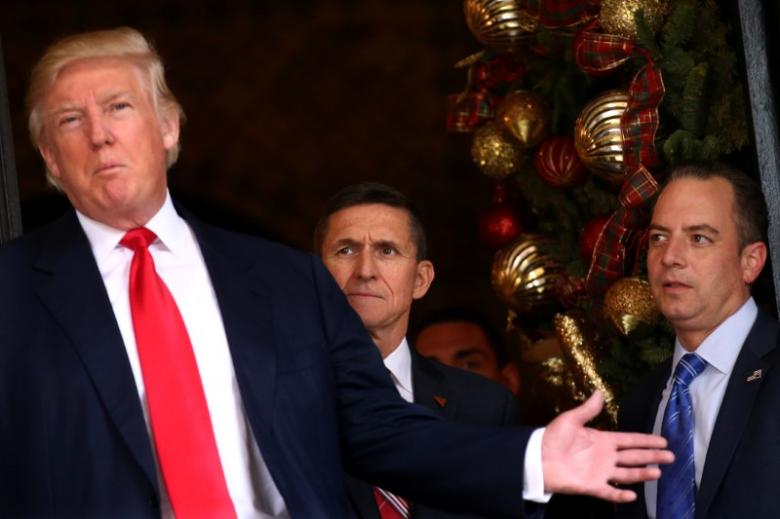Amid hacking row, pressure builds on Trump to soften pro-Russia rhetoric
 US President-elect Donald Trump listens to questions from reporters in the lobby at Trump Tower in New York, US, January 9, 2017 (Photo: Reuters)
US President-elect Donald Trump listens to questions from reporters in the lobby at Trump Tower in New York, US, January 9, 2017 (Photo: Reuters) WASHINGTON – President-elect Donald Trump is finding himself caught between his desire to improve relations with Russia and fellow Republicans who are pushing for a harsher response to what American spy agencies say was the Kremlin’s meddling in the United States presidential election.
The tacit acknowledgement on Sunday by his incoming chief of staff, Reince Priebus, that Russia was behind the hacking of Democratic Party organisations suggests that Trump’s manoeuvring room could be shrinking.
Trump has long been dismissive of the US intelligence conclusion that Russia was behind the election hacks, which Russia has denied, or was trying to help him win the November ballot, saying the intrusions could have been carried out by China or a 400-pound hacker sitting on his bed.
But following a report from US intelligence agencies last week blaming Russian President Vladimir Putin, Russia experts say Trump will face growing calls for a stiff military, diplomatic, economic, and perhaps also covert response after his January 20 inauguration.
“The new US administration will need to adopt a significantly tougher line,” said Nile Gardiner of the Heritage Foundation, a conservative think tank in Washington that is an influential voice in Trump’s transition team.
Republicans in Congress wary of Trump’s push for detente with Putin could pressure the new president to withhold the thing the Russian leader wants most: a rapid easing of the economic sanctions imposed after Russia’s 2014 annexation of Ukraine’s Crimea and its support for separatists in eastern Ukraine, the Russia experts said.
US intelligence agencies say that since the election, Russian spies have turned to hacking other individuals and organisations, including prominent think-tanks, in what analysts think is an effort to gain insights into future U.S. policies.
Washington’s Brookings Institution, which is headed by prominent Russia expert Strobe Talbott, “received a big wave of attacks the day after the election,” but there is no reason to believe its systems have been compromised, said David Nassar, the think tank’s vice president for communications.

Incoming White House Chief of Staff Reince Priebus (R) and US Army Lieutenant General Michael Flynn (C) look at US President-elect Donald Trump as he talks with the media at Mar-a-Lago estate where Trump attends meetings, in Palm Beach, Florida, US, December 21, 2016 (Photo: Reuters)
TRUMP RUSSIA POLICY STILL A BLUR
Although Trump has said the nation needed to “move on to bigger and better things” following the US disclosure of alleged Russian hacking, it appears that Republican and Democratic lawmakers are unlikely to drop the issue anytime soon.
Republican John McCain, the chairman of the Senate Armed Services Committee, told NBC he wanted to create a select committee to investigate the Russian hacking, if he can convince the Republican-controlled Senate’s leaders to charge their minds.
In the meantime, he said, key Senate committees, including Armed Services and Intelligence, will investigate.
Experts say the close scrutiny of Russia’s actions will come just as Trump’s administration starts to craft a comprehensive strategy on the former Cold War foe. It is likely to be weeks or longer before a clear sense of Trump’s actual Russia strategy comes into view.
“Until there’s a team in place, until there’s a little more organisation I tend to think we’re not going to have clear answers,” said Heather Conley, a former deputy assistant secretary of state for Europe now at the Center for Strategic and International Studies.
– Reuters

